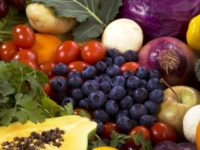 Healthy hemp foods might be approved soon by regulators and set foot in Australia by April 2017.
Healthy hemp foods might be approved soon by regulators and set foot in Australia by April 2017.
The legislation is scheduled prior the Australia and New Zealand Ministerial Forum on Food Regulation next year as the Council of Australian Governments (COAG) meet.
Hemp is defined as the fibre of the cannabis plant that is extracted from the stem.
Industry leaders awaits the decision which will pave way for Australians to reap the health, economic and environmental benefits of hemp food. Hemp Foods Australia said the decision has a significant impact for the economy, the environment and the health of Australians.
“This is a very positive step towards more sustainable farming in Australia – in addition to added job opportunities for Australia’s farming industry,” said Hemp Foods Australia founder, Paul Benhaim.
He further said Aussie hemp farmers are excited about the prospective legalisation of the crop as a food and its separation from marijuana.
“Food Standards Australia and New Zealand has recommended that low THC (tetrahydrocannabinol – the psycho-active ingredient in marijuana) hemp be approved as a food in Australia. We have to remember that hemp is not marijuana and contains no or very low levels of THC, the drug component of marijuana,” Benhaim elaborated.
Australian farmer Harry Youngman welcomed the impending approval of hemp as a food, considering it as “one of the most versatile and eco-friendly crops in the world and many areas of Australia are perfect for growing hemp.”
“We’re really hoping for approval to allow hemp as a food so that Aussie farmers can build their businesses and capitalise on the pent up demand,” said Youngman.
The demand is increasingly gaining recognition globally as paper, clothing, building materials, fuel and food. If approved, Australia could save two billion litres of water per year simply by replacing cotton farming with hemp. This simple change could remove over 10 million kg of carbon dioxide from the atmosphere.
“In addition to this, as a food, hemp is a highly nutritious source of plant-based protein and can be used as food ingredients like flour, oil and protein powder,” added Benhaim. “Hemp seeds contain more polyunsaturated fatty acids than any other food and are the only food to contain Omega 3 and 6 in just the right amounts to meet our nutritional needs,” he further explained.
It is a plant-based, rich source of omegas, amino acids, vitamins and minerals, and is also free from soy and diary. A tablespoon of Hemp seeds contains a high amount of essential fatty acids—more than 7,000mg. It helps regulate blood clotting, body temperature, blood pressure, reproduction and boost the immune function.















